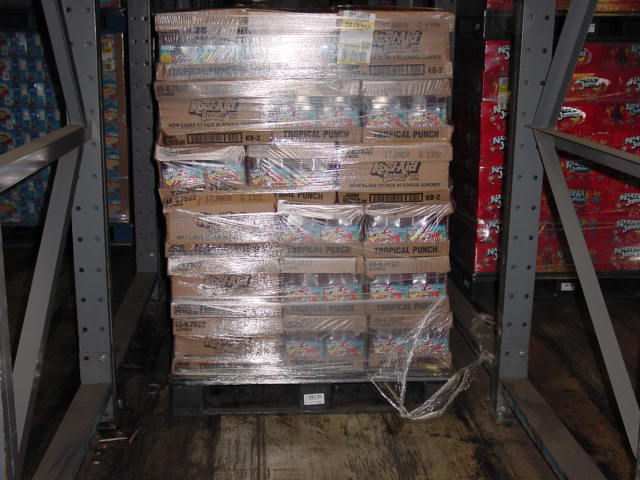A business’ number one priority is the bottom line. After all, companies are in business to make money. Unfortunately, the old adage that you have to spend money to make money is true. Manufacturing, transportation, and distribution all cost money even before any sales are made. Naturally, executives and managers are under pressure from shareholders and board members to reduce the costs of getting goods to market since even reducing prices by a few cents on each shipment means dollars added to the bottom line.
Odds are that your company has already reduced costs in production, service, or manufacturing. Cutting costs further could mean sacrificing either quantity or quality and running the risk of alienating your customers. But logistics management offers an often overlooked opportunity. Executives are frequently hands-off when it comes to logistics, and this makes cost reduction in logistics management one of the most viable ways to reduce your overhead cost and Total Cost of Business (TCOB).
Reducing Logistics Costs Through Improved Safety
For certain products, improper storage at any point along the supply chain can cost money by rendering them unfit for use. Food like dairy or produce needs to be kept cold to inhibit bacterial growth, while pharmaceuticals like vaccines lose effectiveness if allowed to warm past a certain point. Outbreaks of illness due to unsafe products are damaging to a company’s bottom line even before fines and fees are imposed by a regulator.
A good operations manager knows that a clean warehouse is also a low-cost warehouse.
Carefully followed procedures and appropriate hygiene are good in and of themselves, but they also ultimately reduce logistics costs. Focusing on each of the following broad areas of logistics safety can trim supply chain costs:
- Product Integrity: If a product is rendered unfit for use before being sold, then the money spent on its production and shipment is effectively wasted. Preventing mishandling and product damage in the logistics chain has a direct payoff in increased sales potential.
- Storage and Transport Hygiene: Clean, sanitary work environments are critical for quality control, consumer safety, and the integrity of not only your products but your storage and transportation equipment as well. Debris and spills represent a constant labor and maintenance cost. A good operations manager knows that a clean warehouse is also a low-cost warehouse.
- Employee Safety: Losing the talent and knowledge of experienced employees due to injury can slow your operations down. Worker compensation and increased insurance prices are costs that don’t offer a return on investment. Protecting your employees’ health and happiness is a good way to keep costs low.
Individually, each of these issues contributes to a fraction of the costs of your logistics system; however, over time they add up to significant cumulative costs on your entire supply chain. Strategies that reduce these small costs will begin to add up to long-term profit for your company.
Cost Reductions Through Materials Savings
The supply chain consumes a constant stream of materials. Product must be shipped in packaging to make it easier to handle in bulk. In turn, packages are placed on a pallet that makes it possible for different types of goods to be handled by the same equipment. Plastic shrink wrap is then used to hold the packages in place on the pallet. Depending on how your logistics chain is set up, it’s likely that all of these materials will be used for a single trip through the supply chain and then discarded. This doesn’t have to be the case.
Reusable wood block pallets have a longer lifespan than stringer pallets, wasting less wood and ultimately cutting your costs.
Cardboard is already commonly recycled, and it would probably be difficult to find a warehouse or other logistics operation that wasn’t already equipped with a compactor and a baler. Plastic wrap, on the other hand, is less commonly recycled. It takes a lot of shrink wrap to make a profit from recycling, but busy warehouses and distribution centers can easily produce enough. Instituting a plastic wrap recycling program to recoup some of your logistics costs is simply a matter of providing the appropriate bins to separate it from the rest of your waste.
Shipping platforms do not need to be single-use, either. Reusable wood block pallets have a longer lifespan than stringer pallets, wasting less wood and ultimately cutting your costs. Plastic pallets have an even longer lifespan than wood block pallets; they’re able to make 80-100 trips through the supply chain before recycling. However, arranging the reverse journey to enable pallets to be reused requires transportation that many companies don’t have or can’t spare. To solve this issue, pallet pooling programs provide pallets as needed and arrange for them to be collected at the end of the supply chain.
Cost Reductions in Logistics Management Through Pallet Pooling Programs
 A pallet pooling program ultimately makes logistics management easier and cheaper. These programs offer the benefits of reusability without the transportation complications. Various pallet pooling programs are available to choose from, but achieving cost reductions in logistics management demands that companies choose a pooled pallet that furthers their safety and supply chain integrity goals.
A pallet pooling program ultimately makes logistics management easier and cheaper. These programs offer the benefits of reusability without the transportation complications. Various pallet pooling programs are available to choose from, but achieving cost reductions in logistics management demands that companies choose a pooled pallet that furthers their safety and supply chain integrity goals.
Plastic pallets make achieving safe, sanitary, and lower cost logistics systems easier. In fact, plastic pallets are able to contribute to cost reductions in supply chains through all of the ways discussed in this post. Their non-absorbent construction, structural integrity, durability, and light weight (less than 50 pounds compared to a wood block pallet’s 75 pounds) mean they are able to reduce transport costs, reduce product damage, increase warehouse hygiene, improve employee safety, and provide materials savings through reusability. Plastic pallets are so inherently superior to wood block pallets that the logistics industry as a whole has been turning to them to solve many nagging problems in supply chains, and they’re the obvious choice for companies looking to achieve cost reduction in logistics management.
To begin reducing your logistics costs with the reusable, hygienic iGPS plastic pallet, give our team a call at 1-800-884-0225, email a specialist at switch@igps.net, or visit our contact page.



